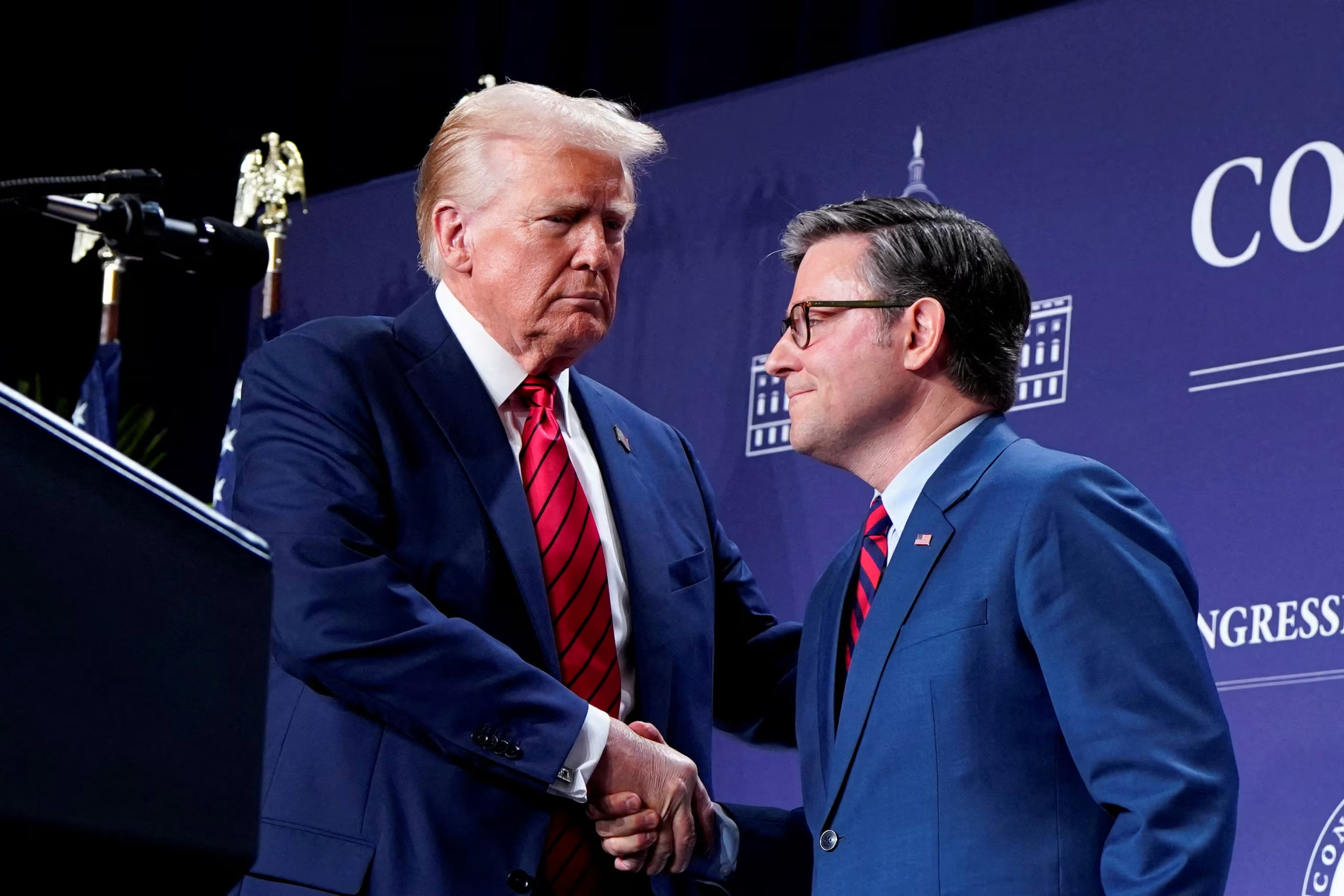A Significant Win for Trump’s Judicial Agenda
The U.S. Senate on Wednesday confirmed President Donald Trump’s nominee Anne-Leigh Gaylord Moe to serve on the U.S. District Court for the Middle District of Florida — marking yet another major judicial milestone for an administration still rapidly reshaping the federal bench. The vote, 53–46, passed largely along party lines, continuing a trend of aggressive GOP efforts to fill long-stalled judicial vacancies.
Shortly after the vote, Trump celebrated the confirmation on Truth Social, praising Moe as a fierce defender of public safety and a judge committed to restoring law-and-order priorities.
“Anne-Leigh has fiercely advocated for Sunshine State residents,” he wrote, lauding her service on Florida’s Second District Court of Appeal and her years on the state’s Thirteenth Judicial Circuit Court. “She will prioritize LAW AND ORDER unlike other activist judges who put the safety of illegal criminals over the safety of Americans.”
For Trump — who has made the courts a central focus of his second-term agenda — Moe’s confirmation represents not only another conservative addition to the judiciary, but also a broader victory in an ongoing political struggle with Senate Democrats who have worked for months to slow confirmations across the federal bureaucracy.
Who Is Anne-Leigh Moe?
With more than a decade of judicial experience, Moe arrives on the federal bench with a resume Republicans say makes her uniquely qualified for the role. She has served on Florida’s Second District Court of Appeal since 2022, following nine years as a circuit judge in Tampa’s Thirteenth Judicial Circuit. Before that, she spent years as an assistant state attorney in Hillsborough County, gaining extensive courtroom experience.
Her supporters describe her as a meticulous, no-nonsense jurist known for handling complex cases and maintaining a firm, orderly courtroom. GOP senators repeatedly emphasized her record as evidence that she is prepared for federal service.
Democrats, however, voiced concerns about her judicial philosophy, pointing to several rulings they argued reflected a more conservative lean. None of those objections prevented the final vote from reaching the floor.
A Broader Confirmation Push by Senate Republicans
Moe’s confirmation arrives amid an unprecedented wave of Trump administration appointments. Earlier this month, Senate Republicans successfully confirmed more than 100 of the president’s nominees in a single round — including ambassadors, high-level political officials, and key administrative personnel.
This mass confirmation occurred after Senate Republicans altered chamber rules to expedite approvals. The rule change allows most executive-branch nominees to be voted through in groups rather than individually, dramatically reducing the hours of debate Democrats can use to stall appointments.
To be clear, this rule change does not apply to federal judicial nominees — including district judges like Moe — or cabinet secretaries. Those still require individual votes.
But the move set the stage for a faster, more aggressive confirmation schedule, enabling Trump to fill positions Democrats had successfully delayed for months.
Among the high-profile confirmations that advanced alongside Moe’s earlier this month:
-
Herschel Walker, who will serve as U.S. Ambassador to the Bahamas.
-
Sergio Gor, former White House personnel director, who was confirmed as ambassador to India.
-
Multiple senior administration officials appointed to positions across the Departments of State, Defense, Commerce, and Homeland Security.
With dozens more nominees still lined up, Senate Republicans say they intend to continue clearing the backlog aggressively.
How Republicans Broke the Logjam
This confirmation wave didn’t come out of nowhere. For months, Democrats had used every available procedural tactic to slow or prevent votes on Trump’s nominees — including withholding “blue slips,” the tradition allowing home-state senators to block judicial picks.
The standoff grew so severe that Republicans considered enabling Trump to make recess appointments, a dramatic move that would allow him to fill vacancies while the Senate was out of session. Ultimately, GOP leaders rejected that option, saying it would set a dangerous precedent if Democrats regained power.
Instead, Republicans turned to what is often called the “nuclear option” — changing Senate rules with a simple majority vote. Under the new rules, large batches of nominees can be confirmed in one action, leaving Democrats with fewer opportunities to run out the clock.
Trump had publicly criticized Sen. Chuck Grassley (R-Iowa), then chairman of the Senate Judiciary Committee, for refusing to eliminate the blue-slip process earlier, accusing him of enabling Democratic obstruction. Grassley defended the tradition as a courtesy between senators, but the pressure from the White House continued to grow.
By late summer, Senate Republicans — led by Sen. Katie Britt of Alabama — began floating targeted rule changes to expedite confirmations. Britt said she was working directly with Democrats on a compromise, though no bipartisan deal emerged. Instead, Republicans acted alone.
The result was one of the fastest confirmation pushes in recent Senate history.
The Middle District of Florida: A Strategically Important Appointment
Moe’s new position places her in one of the most influential federal districts in the country. The Middle District of Florida covers Tampa, Orlando, Jacksonville, Fort Myers, and surrounding regions — a jurisdiction that sees some of the nation’s most high-profile cases involving:
-
immigration enforcement
-
drug trafficking
-
national-security prosecutions
-
complex white-collar crimes
-
civil rights disputes
-
major commercial litigation
Given Florida’s growing population, its central role in multiple federal initiatives, and its increasing prominence in national politics, the district has long been viewed as a critical component of any president’s judicial strategy.
By appointing Moe — a judge who enjoyed strong support from Florida officials — Trump is further cementing conservative influence in a state that has become both politically pivotal and increasingly central to national litigation trends.
Democratic Opposition and the Political Climate Around Judicial Appointments
Although Moe’s experience was not in dispute, Democrats argued that the current confirmation process is occurring under abnormal, highly politicized conditions.
They pointed to the Senate’s recent rule changes as evidence that Republicans are steamrolling longstanding norms to reshape the government at record speed. Democrats accused Republicans of “flooding the courts with ideologues,” while GOP leaders countered that Democrats were abusing delay tactics to undermine the functioning of the federal government.
Judicial nominations, in particular, have become a flashpoint. With Trump prioritizing conservative judicial appointments as a cornerstone of his second-term agenda, Senate Republicans have made clear that they will confirm as many nominees as possible ahead of what they anticipate will be a volatile 2026 election season.
A Victory That Extends Beyond One Judge
For Trump, Moe’s confirmation is more than a single personnel move — it represents proof that the administration’s judicial strategy is working despite fierce political opposition.
It also signals that Senate Republicans remain united in their effort to accelerate confirmations. With dozens of vacancies still available and more nominees waiting in committee, Wednesday’s vote is likely the beginning of another intense confirmation cycle.
The administration has made clear that filling the federal bench with conservative jurists is one of its top priorities. Moe’s confirmation reinforces that commitment — and strengthens the president’s long-term influence on American jurisprudence for years to come.
What Comes Next
Legal observers expect a steady stream of additional confirmations in the coming weeks. The Senate Judiciary Committee is currently advancing a slate of district and circuit court nominees, while the administration continues to vet new candidates.
Given the pace of recent activity — and the Senate’s newly streamlined procedures — Trump could leave 2025 with one of the most significant judicial appointment records in modern presidential history.
For now, Anne-Leigh Moe’s confirmation stands as the latest example of what both sides agree is a reshaping of the judiciary that will have consequences far beyond the next election.

Emily Johnson is a critically acclaimed essayist and novelist known for her thought-provoking works centered on feminism, women’s rights, and modern relationships. Born and raised in Portland, Oregon, Emily grew up with a deep love of books, often spending her afternoons at her local library. She went on to study literature and gender studies at UCLA, where she became deeply involved in activism and began publishing essays in campus journals. Her debut essay collection, Voices Unbound, struck a chord with readers nationwide for its fearless exploration of gender dynamics, identity, and the challenges faced by women in contemporary society. Emily later transitioned into fiction, writing novels that balance compelling storytelling with social commentary. Her protagonists are often strong, multidimensional women navigating love, ambition, and the struggles of everyday life, making her a favorite among readers who crave authentic, relatable narratives. Critics praise her ability to merge personal intimacy with universal themes. Off the page, Emily is an advocate for women in publishing, leading workshops that encourage young female writers to embrace their voices. She lives in Seattle with her partner and two rescue cats, where she continues to write, teach, and inspire a new generation of storytellers.









